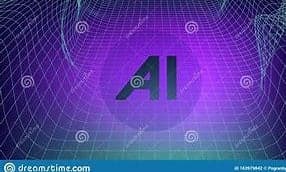

AI in Technology Destruction
Artificial Intelligence (AI) has emerged as a powerful force in various industries, revolutionizing processes and decision-making. However, as its influence grows, concerns about its impact on employment, security, and ethical considerations have become prominent.
Power of AI
In the business landscape, a significant number of leaders recognize the importance of AI for success. According to a Deloitte survey, 94% of 2629 business leaders believe AI is critical for success. Notable figures like OpenAI CEO Sam Altman and Elon Musk express both the potential and risks associated with AI. Altman expresses concern about unregulated AI, while Musk emphasizes the double-edged nature of super-intelligence.
AI has demonstrated remarkable capabilities. In the realm of chess, Stockfish, an online chess platform, was surpassed by Google's Alpha Zero in 2017. Alpha Zero, not a traditional chess program, utilized Machine Learning (ML) to learn chess and achieved significant success.
Unemployment Concerns
The rise of AI has implications for employment, impacting various sectors:
1.Photography Industry: AI tools like Tryiton generate professional photos at a lower cost, potentially affecting jobs in photography. 2.Creative Jobs: Professions requiring creativity, such as graphic designers and copywriters, may be impacted by AI. 3.White and Blue Collar Jobs: Receptionists, proofreaders, couriers, advertising salespeople, booking clerks, and more are susceptible to AI-driven automation. 4.News Reporting: AI is already replacing news reporter roles, with instances of AI-generated news in various languages. 5.Computer Support Specialists: Jobs in computer support are also being affected by AI advancements.
Cybersecurity Challenges
While AI can enhance cybersecurity by filtering spam, detecting passwords, and identifying bots, it also poses threats. AI-powered tools can be used for hacking, raising concerns about the security of personal and government data.
Security of the Nation
With an increasing reliance on digital storage, the security of citizens' data, business information, and government negotiations becomes crucial. The vulnerability of data stored in chips, RAMs, and ROMs poses a potential risk if not adequately protected.
Emotion and Feeling in AI
The integration of AI into various aspects of life, including commercials, raises questions about its ability to understand and respond to human emotions effectively.
The Day of Human vs. AI
A future dominated by AI, robots, and IoT devices may lead to significant changes in daily life. Automation of tasks from waking up to chores raises concerns about job displacement, societal divisions, and more.
Regulation Laws
The absence of clear regulations and accountability for AI mistakes poses challenges. Determining responsibility in scenarios like AI-driven vehicles making split-second decisions lacks clarity, necessitating the development of comprehensive regulatory frameworks.
Conclusion
In the face of AI's rapid evolution, concerns about unemployment, cybersecurity, emotional understanding, and regulatory frameworks persist. While acknowledging these challenges, it is essential to remember historical parallels where technological advancements led to the creation of new opportunities. The coexistence of AI and human intelligence requires thoughtful regulation, ethical considerations, and ongoing adaptation to ensure a harmonious future.